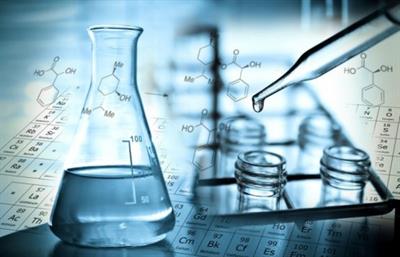How Chemical Products Are Changing Different Industries Worldwide
Wiki Article
Secret Considerations for Selecting the Right Chemical Products to Achieve Effective Integrated Solutions in Your Operations
Picking the suitable chemical products for incorporated solutions in operations requires a diverse approach that encompasses various vital factors to consider. From analyzing chemical compatibility to making certain adherence to governing criteria, each aspect plays an essential function in optimizing operational performance and safety and security.Comprehending Chemical Compatibility

To evaluate compatibility, one should consider elements such as the chemical buildings of the materials included, consisting of pH, concentration, temperature level, and the visibility of contaminations. Using compatibility charts and data sources can offer valuable understandings into potential communications. Additionally, performing small examinations can assist identify unpredicted reactions that might not be documented.
Aspects such as moisture, light exposure, and temperature can influence the security and sensitivity of chemical products. By prioritizing chemical compatibility during the selection process, organizations can boost operational performance, reduce the threat of crashes, and ensure compliance with security methods.
Reviewing Regulative Conformity
In the complicated landscape of chemical product choice, assessing governing compliance is critical to making certain not just security however also legal adherence. Organizations must browse a myriad of guidelines, from regional and national regulations to global requirements, that govern the usage, storage, and disposal of chemical substances. This needs a detailed understanding of relevant policies such as the Occupational Safety And Security and Health And Wellness Administration (OSHA) criteria, the Environmental Security Firm (EPA) guidelines, and the European Union's Enrollment, Assessment, Authorisation and Constraint of Chemicals (REACH)When selecting chemical products, it is vital to verify that suppliers supply Safety and security Data Sheets (SDS) that information possible risks and managing requirements. Additionally, organizations should confirm that the chemicals abide by industry-specific laws, which may impose extra terms. Non-compliance can result in serious penalties, including fines and functional shutdowns.
Additionally, organizations need to remain upgraded on regulative modifications, as non-compliance can occur from outdated practices. Developing a durable conformity technique, including normal audits and staff member training, can assist guarantee adherence to current laws. Eventually, prioritizing regulatory conformity not only mitigates threat however additionally improves the organization's reputation and operational effectiveness.
Assessing Environmental Influence
How can organizations effectively evaluate the environmental impact of chemical items throughout the choice process? Organizations ought to start by recognizing the possible dangers associated with each chemical, including poisoning, determination in the environment, and bioaccumulation possibility.In addition, organizations can leverage third-party qualifications and eco-labels that suggest compliance with ecological requirements - Chemical Products. Engaging with vendors who focus on sustainability practices can additionally improve the selection procedure. It is essential to analyze not only the straight effects of chemical use but likewise the indirect influences, such as energy usage and waste generation
Implementing life cycle assessment (LCA) methods can provide detailed understandings into the environmental footprint of chemical products, highlighting locations for renovation. By prioritizing openness and cooperation with stakeholders, organizations can make educated decisions that align with their sustainability goals while lessening negative environmental end results. This proactive technique eventually cultivates a more liable and eco-conscious functional structure.
Evaluating Cost-Effectiveness
While examining chemical products for operational usage, companies have to additionally think about cost-effectiveness as a vital consider the choice process. This entails evaluating not just the preliminary acquisition cost but additionally the total expense of possession, which includes variables such as usage effectiveness, upkeep, and disposal costs. Chemical Products. A product that appears affordable upfront may incur higher costs in energy usage or need more frequent replacement, ultimately affecting the bottom lineAdditionally, companies need to assess the potential for price savings via maximized formulas that boost efficiency and decrease waste. Products that need reduced application prices or offer faster processing times can lead to considerable financial savings over time. It is also crucial to think about the impact of regulatory conformity expenses, as non-compliance can cause fines and enhanced operational expenses.
Additionally, organizations ought to examine the long-lasting worth stemmed from the chemical items, consisting of enhanced quality, raised efficiency, and enhanced safety and security. A comprehensive cost-effectiveness analysis equips companies to make enlightened choices that line up with both their economic goals and functional purposes, eventually leading to lasting and reliable techniques.
Identifying Vendor Integrity
Supplier integrity is vital when selecting chemical items for procedures, as it directly affects both product high quality and operational effectiveness. A trustworthy vendor regularly delivers top quality products in a timely manner, guaranteeing that your processes remain nonstop. Clicking Here To recognize provider reliability, start by analyzing their credibility within the market. Look for out testimonials, testimonials, and situation researches that highlight their efficiency and client satisfaction degrees.Following, take into consideration the vendor's background of compliance with regulations and criteria. A trustworthy vendor ought to have a robust quality control program that abides by industry guidelines. In addition, review their capability to supply technical assistance and item info, which is more info here crucial for informed decision-making.

Conclusion
Finally, selecting the suitable chemical items for integrated remedies necessitates a detailed analysis of several essential aspects. Understanding chemical compatibility, guaranteeing regulative conformity, analyzing ecological influences, examining cost-effectiveness, and determining reputable distributors collectively add to educated decision-making. Such a method not just boosts operational efficiency and safety and security yet likewise mitigates possible risks. Prioritizing these considerations can result click this link in more lasting and efficient operational techniques in different sectors.Report this wiki page